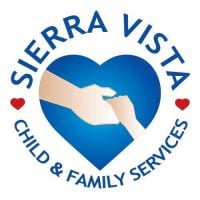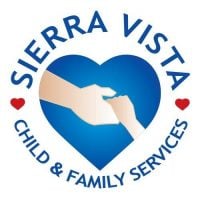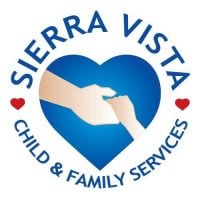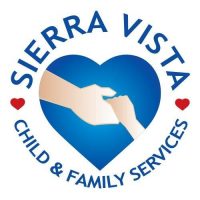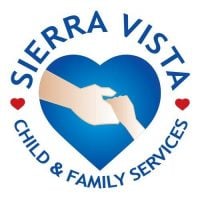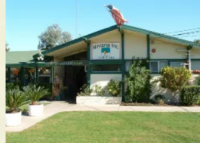Living Center
Drug Rehab Center in Modesto, California
Heritage Living Center is a comprehensive treatment center in Modesto, California providing quality care for alcoholism, substance abuse and opioid addiction with evidence-based services tailored to individual needs.
About This California Facility
Heritage Living Center is a comprehensive treatment center located in Modesto, California, providing quality care to individuals seeking recovery from alcoholism, substance abuse, and opioid addiction. Their compassionate and knowledgeable staff offers a comprehensive range of evidence-based services that can be tailored for each person's specific needs. Their comprehensive approach includes residential long-term care, outpatient services, aftercare supports, and intensive out-patient offerings.
Heritage Living Center is focused on offering the most effective and customized treatments for every individual. Their treatments include a range of evidence based therapies, such as family therapy, group therapy, couples therapy, and individual therapy, that can be tailored to each individual's specific needs and goals. Additionally, they accept private health insurance, making it affordable and accessible for individuals seeking recovery. Heritage Living Center is the premier choice for comprehensive care in the Modesto area, offering a comprehensive approach, high-quality care, and comprehensive supports.
Genders
Ages
Modality
Additional
Conditions and Issues Treated
Substance abuse is defined by the continued use of drugs or alcohol despite negative consequences, such as legal or work problems. It can be treated using a variety of services, including therapy and medication.
Substance abuse treatment is beneficial for:
- People who have been using drugs or alcohol for a long time.
- People who have been using drugs or alcohol to cope with stress, anxiety, or depression.
- People who have a mental health disorder in conjunction with substance abuse.
- People who continue to use drugs or alcohol despite the harmful effects they cause on their own life and the lives of others.
- People who have had multiple failed attempts at recovery without medical assistance.
If you believe that addiction treatment is right for you or a loved one, you can contact your primary care physician, or search for addiction treatment centers in your area. Treatment is beneficial to people who are motivated towards recovery, and who understand the benefits of professional care.
Opioid addiction is the result of repeated use, or abuse, of opioid drugs. It is recommended for people who are dependent on opioids, or who have a high risk for dangerous health concerns, to seek professional treatment. Treatment plans usually include behavioral therapy and medication-assisted treatment.
Opioid drugs include: fentanyl, heroin, methadone, oxycodone, and oxymorphone.
Opioid addiction treatment is beneficial for:
- People who have a history of severe withdrawal.
- People with a high risk for dangerous health concerns.
- People having difficulty overcoming opioid addiction on their own.
Levels of Care Offered at Living Center
This center offers a variety of custom treatment tailored to individual recovery. Currently available are Aftercare Support, Intensive Outpatient, Outpatient, with additional therapies available as listed below.
An Intensive Outpatient Program (IOP) is a form of drug treatment that allows individuals to receive the therapy they need while remaining in their homes and community.
An IOP is typically 3-5 days per week, at least 4 hours each day of treatment. Treatment can last for a few months or longer, depending on the situation.
An IOP is a step down from an inpatient treatment center and can be used as a step down from an inpatient stay or as a more intense form of outpatient treatment. IOPs allow for the flexibility to continue working and living at home while still meeting treatment demands.
The outpatient programs in Modesto, CA are for those addicted drugs or alcohol. The goal of the outpatient rehabilitation program is to make them stop abusing drugs or alcohol, reduce drug use or addictive behaviors, and become entirely sober. It is generally required to attend the outpatient program for 10-12 hours every week.
Patients can be administered on-the-spot medication to ease withdrawal symptoms such as anxiety, increased heart rate, and even depression. Groups such as Alcoholics Anonymous (AA) and Narcotics Anonymous (NA) can be used as a part of outpatient treatment to help maintain sobriety.
Aftercare support is a service many addicts need to ensure their success at recovery. This service usually includes one-on-one or group therapies, assistance from a sponsor and other types of help designed to make sure the patient continues living a life free from drugs.
Patients also may require medication to help them battle addiction. Some people have been able to successfully recover without additional medications, but others have found that they need help during their transition. Long-term, the patient must take the initiative to attend meetings and receive help from other addicts in recovery.
Therapies & Programs
People in addiction recovery can benefit from individual therapy. This type of therapy involves meeting with a therapist one-on-one. This allows for a personal and trusting relationship to be built so that the patient can be truly themselves and express any emotions they feel. Individual therapy leads to greater understanding and peace about your triggers for addiction and coping strategies to prevent relapse.
Couples therapy for drug addiction is based on the belief that addiction is a family disease. Everyone involved with an addict, not just the addict themselves, is affected by their behavior and the changes the addict goes through. The relationship also changes the addict’s significant other and has likely picked up some codependent behaviors. Codependency is a term used to describe a person obsessed with another person and their needs and feelings while neglecting their own. Addicts are usually people-pleasers, so it is understandable how one can become codependent in relationships with addicts.
Family therapy is a type of group problem-solving that aims to improve communication and relationships between the patient, their family, and sometimes friends. The main goal of family therapy for drug addiction is to create an environment where communication can occur without judgment, hostility, or blame. The therapist is with the family as they learn to communicate with each other differently, especially with the addict when s/he is using.
Group therapy sessions are held in rehab facilities, clinics, churches or community centers that offer drug addiction treatment. People who attend these groups are encouraged to voice their feelings and support other addicts in recovery. This helps group members strengthen their own recovery program while cheering on others who are struggling with sobriety.
Group therapy sessions provide recovering addicts with a chance to cope with everyday situations that many face. Group therapy sessions are held in rehab facilities, clinics, churches or community centers that offer drug addiction treatment.
People who attend these groups are encouraged to voice their feelings and support other addicts in recovery. This helps group members strengthen their own recovery program while cheering on others who are struggling with sobriety.
Payment Options Accepted
For specific insurance or payment methods please contact us.
Is your insurance accepted?
Ask an expert, call (888) 674-0062
Additional Details
Specifics, location, and helpful extra information.
Modesto, California 95350 Phone Number(209) 575-1580 Meta DetailsUpdated November 25, 2023
Staff Verified
Patient Reviews
There are no reviews yet. Be the first one to write one.
Modesto, California Addiction Information
More than 3 million of California's citizens are addicted to illegal drugs. Almost 800,000 people use hard drugs, almost 5 million use marijuana, and another 2.1 million abuse alcohol every year. Other substance abuse issues such as binge drinking and teen drug use are also common. Many illegal drugs such as cocaine, heroin, methamphetamine, and marijuana are smuggled into the state from Mexico.
Modesto, California, has one of the highest rates of opioid abuse in the nation. Methamphetamine and cocaine are also commonly used in the area. The cost of drug addiction and abuse in Modesto is estimated to be $1.3 billion each year. The Substance Abuse and Mental Health Services Administration (SAMHSA) website provide a Treatment Facility Locator tool to help you find drug treatment facilities in your area.
Treatment in Nearby Cities
- Monrovia, CA (295.2 mi.)
- Livingston, CA (23.9 mi.)
- Mill Valley, CA (86.5 mi.)
- Union City, CA (57.7 mi.)
- Hoopa, CA (275.0 mi.)
Centers near Living Center
The facility name, logo and brand are the property and registered trademarks of Living Center, and are being used for identification and informational purposes only. Use of these names, logos and brands shall not imply endorsement. RehabNow.org is not affiliated with or sponsored by Living Center.

